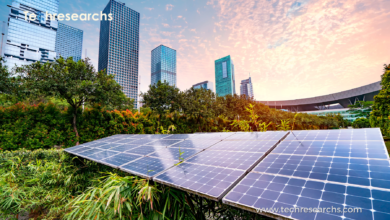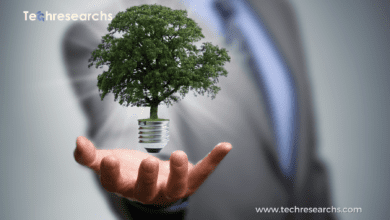Sustainable Biotechnology: Shaping the Future of Medicine and Beyond


Sustainable biotechnology, a burgeoning field at the intersection of biology and environmental responsibility, holds immense promise. In this blog, we will delve into the exciting world of sustainable biotech and its transformative potential in various sectors.
The Essence of Sustainable Biotechnology
Sustainable biotechnology, often referred to as “green biotech,” is a branch of biotechnology that focuses on harnessing biological processes for environmentally friendly applications. It aims to reduce waste, save resources, and mitigate the ecological impact of traditional practices.
Key Principles
At its core, sustainable biotech is guided by principles such as resource conservation, waste reduction, and eco-friendly production.
Applications Beyond Medicine
While sustainable biotech plays a crucial role in healthcare, its influence extends to agriculture, energy, and environmental conservation.
Sustainable biotechnology in Healthcare
In the realm of healthcare, sustainable biotechnology brings a new dimension to medical research, drug production, and patient care.
Green Medicine Production
Sustainable biotech methods promote the eco-friendly production of pharmaceuticals and reduce the carbon footprint of the pharmaceutical industry.
Biodegradable Medical Devices
Researchers are exploring biodegradable medical implants and devices to reduce the environmental impact of healthcare.
Sustainable Biotechnology in Agriculture
Agriculture has much to gain from sustainable biotech practices, from reducing the use of chemical fertilizers to enhancing crop yields.
Genetic Engineering for Crops
Sustainable biotech enables the development of genetically modified crops that require fewer chemical inputs and conserve resources.
Biological Pest Control
Biotechnological solutions for pest control reduce the reliance on chemical pesticides and have less adverse impact on the environment.
Sustainable Biotechnology in Energy
Energy production and consumption are pivotal areas where sustainable biotech can make a significant difference.
Biofuels
Sustainable biotech contributes to the development of biofuels, which are cleaner and renewable sources of energy.
Waste-to-Energy
Biotechnological processes can convert organic waste into energy, reducing landfill waste and producing cleaner energy.
Challenges and Future Prospects
While sustainable biotech offers a plethora of benefits, it also faces challenges, including regulatory hurdles and the need for wider adoption.
Regulatory Complexities
Navigating the regulatory landscape for sustainable biotech can be intricate due to the novelty of the field.
Future Growth
The future of sustainable biotech is promising, with ongoing research and innovations expected to expand its impact.
Learn more about Sustainable Biotech: Pioneering Eco-Friendly Solutions with Science
Conclusion – A Sustainable Biotechnology Path Forward
In conclusion, sustainable biotechnology represents a remarkable intersection of innovation and environmental stewardship. It has the potential to revolutionize healthcare, agriculture, and energy while addressing critical ecological challenges.
As sustainable biotech continues to grow, the need for public awareness and policy support becomes increasingly vital. Embracing sustainable biotechnology not only benefits human health and well-being but also fosters a more sustainable and eco-conscious future for our planet.
Sustainable biotech is not just a scientific endeavor; it’s a testament to our commitment to creating a better world by harmonizing biotechnology with environmental sustainability.



